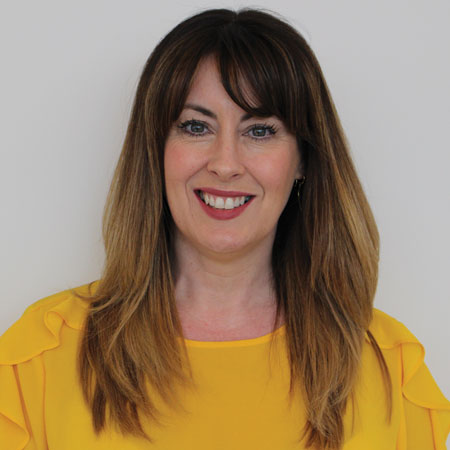Pilots Between NHS And Pharma Finally Take Off
Executive Summary
The majority of pharmaceutical companies in the UK work closely with the NHS and In Vivo spoke to one of them – Janssen – to see how successful industry, health care providers and payers have been in breaking out of their silos and collaborating.
The relationship between the UK’s National Health Service and the pharmaceutical industry has been fraught for much of the 70 years that the former has existed. However, the walls of suspicion and distrust are being broken down bit by bit, with both sides looking to get innovation into the system and improve outcomes in an affordable way.
Jennifer Lee, director of health economics, market access, reimbursement and advocacy at Johnson & Johnson's [Janssen Biotech NV] unit told In Vivo, "We are on the cusp of a new way of working and with the NHS turning 70 this year, it is recognizing that it needs to be sustainable in the future. It has realized that partnering with academics, clinicians, companies and patients is the future."
Janssen is more than a simple supplier of medicines to the NHS, the company has to weigh up what the NHS needs, she said. "Does it need a pill or a service, better integrated care, improvements in compliance and can we provide a solution? We are now designing our products around the needs of the NHS not the other way around."
As an example of the company's collaborative strategy, Lee cited its joint working initiative signed with NHS Wales and the Welsh Government to develop an advanced database to measure the impact of myeloma treatment for patients in the country. The project, which was inked in March 2018, came about after it was identified that hematology services in Wales "require an innovative and personalized system that can critically analyze outcome data for patients with myeloma, and eventually all other hematological malignancies," Janssen noted.
All myeloma patients are being registered at diagnosis, with information regarding their demographic features, disease presentation/staging, diagnostic features, treatment plan, response to treatment and overall survival. Mark Hicken, managing director at Janssen UK & Ireland, said that by collaborating with NHS Wales and Welsh Government, "We hope to build an infrastructure which supports the health service to drive more informed and transparent treatment decisions, while providing patients with a clear assessment of what to expect from their treatment based on real-world evidence data.”
Lee-Ann Farrell, Janssen's government affairs manager for Wales and Northern Ireland, said the initiative means key information can be collected at every step of a patient’s journey and produce qualitative data to better understand what patients actually want from their treatment in terms of clinical outcomes and quality of life. She added that by collaborating with NHS Wales and the Welsh government, as well as working with the charity Myeloma UK, Janssen hopes to build an infrastructure that supports more informed treatment decisions and ensure that funding for myeloma is appropriately allocated for the processes and treatments that are effective "and do what they say on the tin."
Farrell pointed out that Janssen has signed up to the project for five years, but the hope is that it will run for at least a decade and may be expanded from hematology into solid tumors.

Lee-Ann Farrell, Janssen's Government Affairs Manager For Wales And Northern Ireland
Getting this type of project off the ground has been made easier because in Wales, a relatively small country, the stakeholders in the health care sector are well known to each other, which fosters a collaborative spirit. Lee acknowledged that "wholescale change across the NHS is incredibly difficult" and Janssen finds that pilot schemes work better on a local level.
The company is working with what Lee calls "change champions" who have embraced the philosophy of Simon Stevens, the chief executive officer of NHS England, about better integrated health care. "These champions in the NHS want to do things differently and are open to collaboration. They are very forward-thinking and realize that carrying on doing things the way they were done in the past is not going to be sustainable."
Outcomes Not Volume Carry Most Weight
A key element to these changes is the rise of value-based health care where outcomes, not volume, carries the most weight in discussions about delivering a better system. Lee pointed out that Janssen set up one of the UK's first outcomes-based initiatives back in 2007 that involved rebating the cost of its multiple myeloma drug Velcade (bortezomib).
At the time, the ground-breaking deal with NICE, the pricing watchdog for England and Wales, caused a stir as Janssen agreed to charge the NHS for Velcade only if the patients showed a complete or partial response. If they did not respond, the company would rebate the full cost of treatment, which was £25,000 per patient.
Going down the rebate route for Velcade made sense, Lee said. “Offering a money-back guarantee clearly improves your value proposition." She went on to say that as we move into a world of personalized medicines, it makes sense to have more outcomes-based commissioning "and any company worth their salt should back their drug" with innovative pricing schemes.
As well as the Velcade project, Janssen has also offered money-back guarantees in the UK on its hepatitis C drug Olysio (simeprevir) so that the NHS only paid for patients who were effectively cured of the virus after 12 weeks of treatment. Such schemes can work well in multiple myeloma and hepatitis C, where infrastructure is in place to monitor patients and the value of treatment can be demonstrated.
Lee also spoke of another outcomes payment scheme, this time in Manchester, UK, which involves tracking schizophrenia patients prescribed the company's antipsychotic Xeplion/Trevicta (paliperidone). Once again, the provider is reimbursed in full if the treatment does not work as planned, demonstrating the company's belief that paliperidone can play a role in preventing relapse and the substantial cost – between £12,000-£25,000 – that goes with it.
Like Wales, Manchester has become a center of collaboration for pharma and the NHS, with the industry seeing the English city's devolved health and social care system, and 2.8 million citizens, as an ideal place to test initiatives. A number of projects being run in Manchester are moving away from the straightforward transactional relationships between pharma and the NHS. A good example being the establishment last year of the Early Dementia Diagnostic Framework for Greater Manchester, which has the goal of maximizing research, early diagnosis and intervention.
Tackling Dementia Like Never Before
At the heart of the framework is the Dementia Industry Group, which consists of Janssen, [MSD], Eisai Co. Ltd., Biogen Inc., Otsuka Pharmaceutical Co. Ltd. and Roche. This "coalition of the willing," as Farrell called it, includes Health Innovation Manchester (HIM) and the Greater Manchester Health and Social Care Partnership, as well as academia and patient groups. It is an ambitious project that considers ways to prevent the onset of dementia and how to prepare for the potential arrival of disease-modifying therapies. Specifically, a number of workstreams, "all of which will tackle the issue of dementia like never before," according to HIM, have been set up to look at the problem, focusing on areas such as public involvement and engagement (to increase detection of symptomatic people), risk profiling, biomarkers, data access and platform development, to enable effective screening and actual recording of data.
The partners in the framework are also working on creating a future care pathway, while taking into consideration ethical, regulatory and funding aspects. Farrell noted that the vision was to improve outcomes in dementia by ensuring optimal access and uptake of innovative technologies and treatments for eligible patients, while ensuring that the health care system is geared up to provide (and pay for) the best support.
The next step is to produce a set of practical recommendations for making the early dementia diagnostic framework a reality. A feedback event is being planned for early 2019. Sue Clarke, operations manager for the Alzheimer's Society in Greater Manchester, who is co-chair of the public involvement and engagement workstream of the framework, said that the goal was to make Manchester “the best place to live with dementia in the world.”
She added that "dementia is cross-cutting, it is not just about health and social care, it involves everyone in the community.” As such, the pharmaceutical industry, other businesses, local authorities, researchers, leisure services and charities all have a role to play. Clarke claimed it was fantastic that Manchester has "managed to cut across traditional boundaries to bring so many organizations together for the framework" and if successful, the project has the potential to be replicated and rolled out globally.
It is a quip often made that there are more pilots in the pharmaceutical industry than in the airline industry but what is clear is that the barriers between the NHS and pharma are being broken down and other stakeholders are getting their voices heard on innovative projects that can have a major effect in the transformation of health care. As Lee concluded, the sustainability of health care systems around the continent depend on these partnerships more than ever.
This article is part of the Outlook 2019 series – an annual collection provided exclusively to subscribers of Informa Pharma Intelligence publications.
